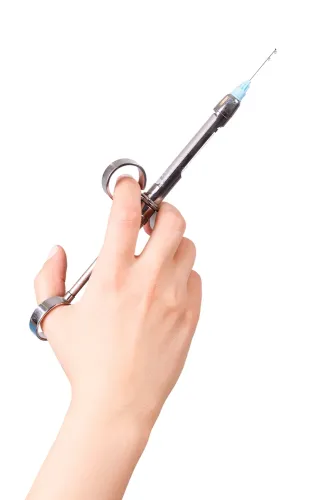Outpatient Facility Coding Alert
Pay Attention to the Payer-Provider Relationship

The physician-patient relationship has immense significance in managing a patient’s condition and well-being, but payer-physician relationship is equally important in ensuring smooth reimbursement claims. Fostering a positive relationship with payers can smooth the claims procedures and increase billing department efficiencies. Here’s how you can develop stronger payer-practice relationships.
Communicate and Document
In earlier times, interactions between payers and providers generally took place between the treating physician and the chief medical officer (CMO) of the payer. Now, however, payers are more likely run by executives with financial backgrounds. Therefore, the nature of communication has changed. It is, however, still important for providers to touch base with the payers regarding their problems and clarify all doubts that arise. This communication is generally with the payor’s contract management representative or team.
Some larger physician practices, ASCs and multi-specialty groups as well as most hospitals have internal contract management staff to facilitate this process, says Sarah L. Goodman, MBA, CHCAF, CPC-H, CCP, FCS, president of SLG, Inc., Consulting.
Tip: Document all conversations between the provider and the payer. This helps keep track of all communication and gives you something to refer to when needed.
Be Part of a Larger Association
It always helps to be a part of a practice association, especially if you’re part of a smaller provider. This connection allows providers to benefit from economies of scale and the associated negotiating leverage. It also empowers them to hire professional managers or upgrade to better electronic health record (EHR) systems that can be helpful in making a case for reimbursement. A database of patient centered records with the advantage of instant and secured access helps you negotiate with ease. If you can substantiate that you are avoiding overutilization, it may help you negotiate a pre-authorization waiver that can save money and time.
Use Technology Wherever Possible
The never-ending paperwork in the billing industry leads to a great expense and increased administrative burden. Having a good automated system in place with at least these four features helps to reduce the burden to a great extent:
- A system for acquiring medical records in an electronic format for each patient and storing them in central database
- A system which can retrieve patient demographic information electronically from your hospital’s registration system
- A system which can electronically submit to Medicare, Medicaid, Blue Cross/Blue Shield, and any other third party capable of receiving electronic claims
-
A system capable of electronic funds transfers with capable third parties to ensure payments are deposited directly into your bank account.
A good EHR solution with outstanding reporting and coding facilitation features helps you submit clean claims and bring down rejection rates. Some payers will have provider portals which allow you to check the claim status and complete other administrative tasks online.
A Good Rapport Goes a Long Way
Strong business relationships depend on consistent professionalism and courtesy. Therefore, good relationships between the payers and the providers pave the way for smooth interactions even in complicated situations. Your facility could end up dealing with the same individuals at payer organizations repeatedly, so developing good rapport can help keep your relationships positive over the long term, making it more likely you’ll get the help you need from them.
Related Articles
Outpatient Facility Coding Alert
- Billing Strategy:
Pay Attention to the Payer-Provider Relationship
Good relations with payers can help you better manage hospital accounts receivables. The physician-patient relationship [...] - ICD 10 Update:
You Don't Need to Fret Over Numerous Codes for Strep Throat
Choose one of three options for an appropriate description. You won’t have to select from [...] - RVUs Refresher:
Keep Up On PFS by Building a Comprehensive Understanding of RVUs
Break down the components of your payment. The Centers for Medicare and Medicaid Services (CMS) [...] - Reimbursement:
Strengthen Your Consolidated Bills With These 4 Tips
Read on to know how to negotiate SNF patient cases. Your physician performs services for [...] - You Be the Coder:
Know When to Use 31622 and 31623
Question: My doctor wants me to bill 31623 and 31622 for services during the same encounter, [...] - Reader Questions:
Clear Calcific Band Keratopathy With 371.43
Question: I have a patient with extreme calcific band keratopathy. Is there a more specific ICD-9 [...] - Reader Questions:
Step Away From Traditional "Fee-For-Service" Arrangement
Question: When a surgery being performed in an ASC under general anesthesia, can the ASC bill [...] - Reader Questions:
Report 28299 for Bunion Deformity
Question: Can CPT® code 28299 be used for a patient that does not have a bunion [...] - Reader Questions:
Depend on Number and Nature of the Nails to Choose Between 11719, 11721, 11720
Question: What CPT® code is best for cutting and filing ten toenails? Indiana Subscriber Answer: The answer [...] - Reader Questions:
Choose 45378 When Colonoscopy is Used as Diagnostic Method
Question: Our physician performed a colonoscopy for a rectal bleed on a Medicare patient. The patient [...]




